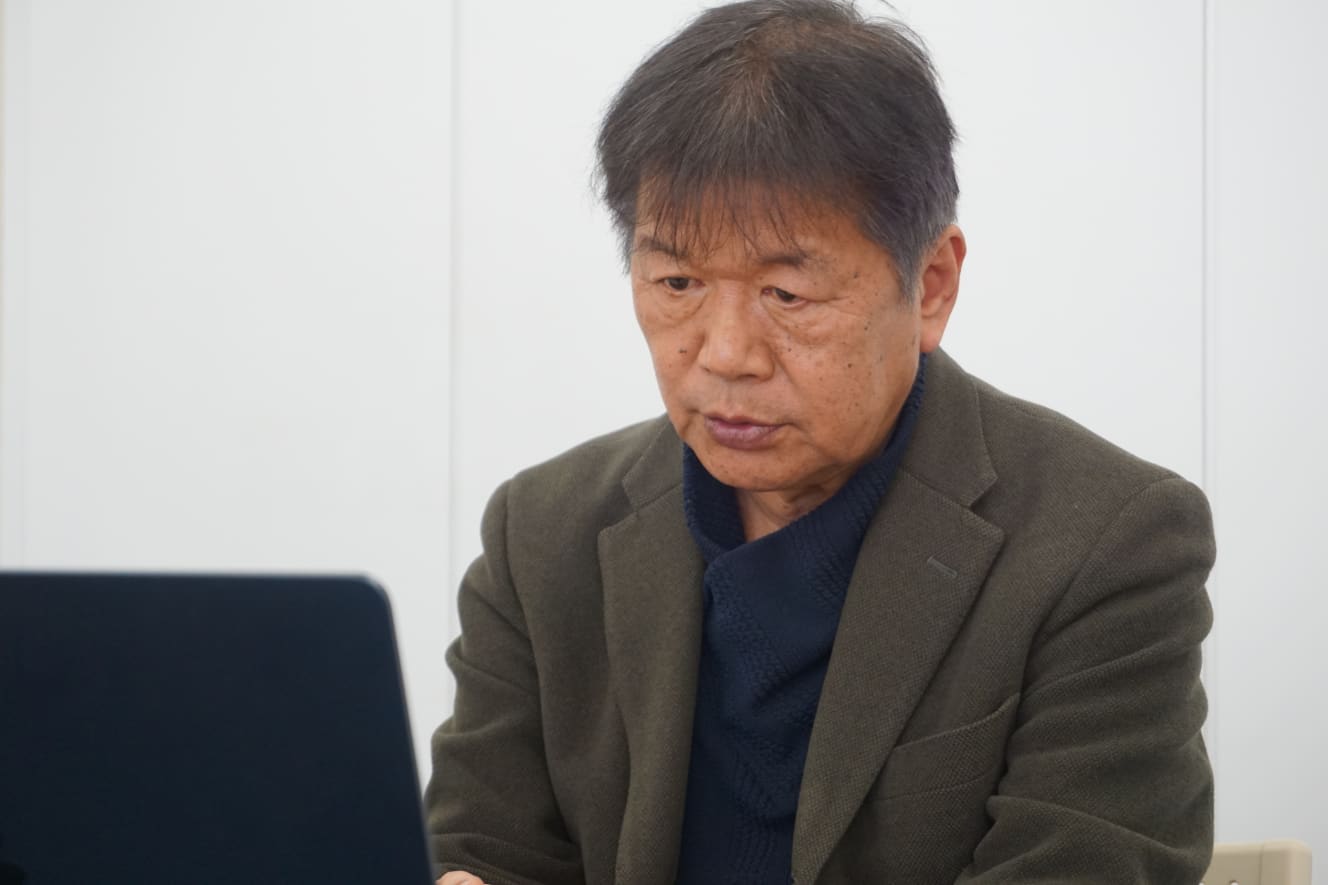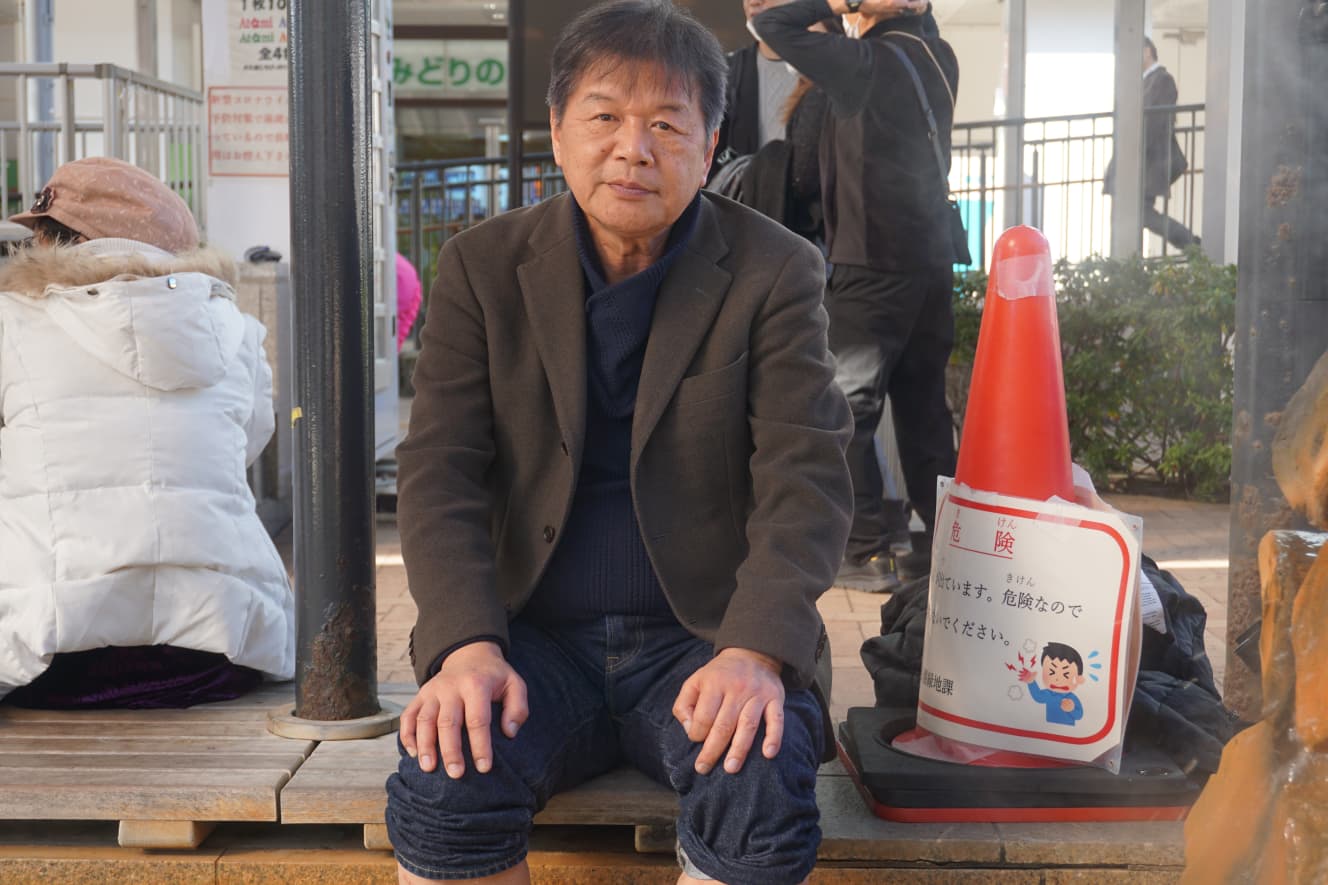Ex-Communist Initiates Unprecedented Trial for Party’s Future
On January 18, the Communist Party announced the retirement of Chairman Kazuo Shii (69). Tomoko Tamura, a member of the House of Councillors (58), will succeed him. As the party’s first female chairperson, this change marks a replacement after 23 years, likely intended for an image refresh in anticipation of the upcoming House of Representatives election. However, with the new leadership in place, skeptical opinions have already emerged from within the party.

Former party member and journalist Nobuyuki Matsutake, 68, was expelled from the party last February on the grounds that he had seriously violated the party constitution. In November, he requested a review of the expulsion, but the request was rejected at the party convention this month. When the Kanagawa Prefectural Assembly member objected to the decision, Chairman Tamura responded in a heated tone, calling it a violent statement that lacks any moderation and a complete lack of understanding of the political nature of the issue. A number of people pointed out power harassment in response to the new chairperson’s remarks.
“I believe that what is most needed for the current and future Communist Party is transparency. In order to make that clear, I have resolved to fight the party in the legal arena.”
In his book “Shin JCP Manifesto” (Bunshun Shinsho), Matsutake calls for the introduction of a party leader election system, and will fight in court to have his expulsion from the party revoked. What is happening to the Communist Party now? We asked Mr. Matsutake, who says he decided to file the lawsuit for the sake of the party’s future, about his future prospects.

“The main points of contention are the preservation of my status while seeking the revocation of the expulsion and the defamation I faced with baseless personal attacks in Shinbun Akahata and other outlets, saying ‘Matsutake is engaging in factional activities (colluding with power).’ I have already had multiple discussions with a team of three lawyers. The reexamination of my case was not conducted by approximately 800 convention delegates but by 21 party executives. The convention delegates were not even provided with my reexamination request. I cannot accept this process. Of course, I still strongly want to return to the party. However, my true purpose is to visualize the party’s regulations and the judgments of party executives through the trial. There are currently discrepancies in the interpretation of the party’s regulations. If these become clear during the trial, it might become possible for party members to freely express themselves, and there is a potential for the organization to become healthier.”
Since his expulsion in February of last year, there have been a number of comments on social networking sites from party members who say that the expulsion is too much. 7 active party members held a group press conference on January 11, appealing for the withdrawal of the expulsion and for measures against harassment.
In the Communist Party, it is extremely unusual for a party member to express their opinions about the leadership in a press conference.

However, the party’s official newspaper, Shimbun Akahata, reportedly adopted the stance that “Matsutake’s expulsion was inevitable,” and opinions supporting that “the disciplinary action was appropriately carried out” were featured.
Matsutake says.
“I feel that the freedom of expression and assembly for party members is being threatened. Since my expulsion, party members who autonomously express their thoughts have emerged. This should be a mere expression of opinions, not necessarily criticism of the party. I can’t help but feel uncomfortable with it being conclusively labeled as factional activity. The act of denouncing a general party member who raised objections in the public space of the party convention, which also included video streaming, can be seen as harassment. In the current climate where society is scrutinizing harassment issues, the significant divergence between the common sense of the general society and the Communist Party cannot be ignored. This contradiction is notable within the Communist Party, which has been investigating harassment issues. Some party members have expressed their disgust with the results of the party convention and have declared their intention to leave the party.”
The trial is expected to be protracted. Matsutake estimates that the cost will be about 10 million yen, which he plans to raise through fundraising by campaigning from supporters and distributing his own e-mail newsletters. The case involving party members and the party is the “Communist Party Hakamada Case,” in which a party member expelled from the party in 1988 was asked to vacate a house owned by the party. However, the former party member lost the case on the grounds that, in principle, judicial review does not extend to acts within a political party. We are well aware that this will be another tough fight. Still, he continued, “There is a reason why we are willing to continue fighting in the courtroom.

“I believe that the Communist Party needs to respond flexibly to areas that need change, as it continues to decrease both its number of members and parliamentary seats. While many voters see the Communist Party as the far-left in Japan, I perceive it as the left side of the Liberal Democratic Party. Depending on the approach, I think the party has the potential to expand its supporters from the middle class to the conservative base. By engaging in discussions among party members with principles, I believe we can move closer to such an ideal. For the sake of future party members, I intend to continue the fight.”
What will the former party members’ struggle against the Communist Party really produce?